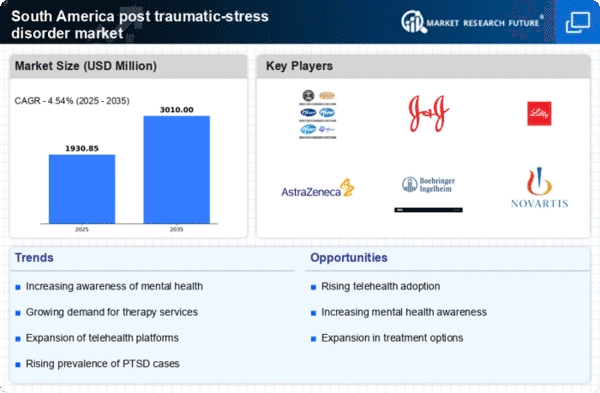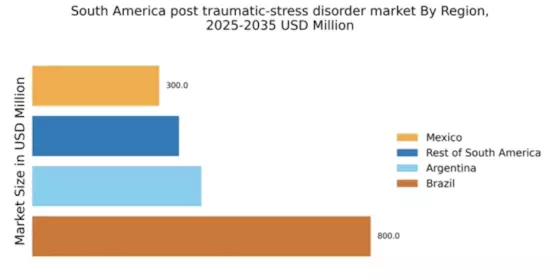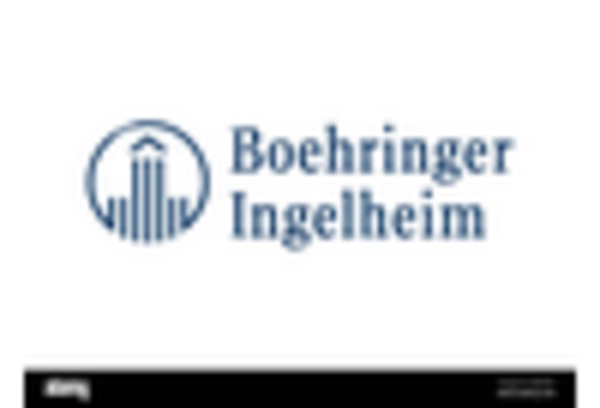Government Policy Reforms
Government policy reforms aimed at improving mental health services in South America may serve as a catalyst for the post traumatic-stress-disorder market. Legislative changes that prioritize mental health funding and access to care can enhance the availability of resources for PTSD treatment. For instance, recent initiatives have allocated increased budgets for mental health programs, which could lead to improved infrastructure and service delivery. As governments recognize the importance of addressing mental health issues, the post traumatic-stress-disorder market may experience growth driven by enhanced support systems and funding opportunities for both public and private sectors.
Evolving Treatment Modalities
The post traumatic-stress-disorder market is witnessing a shift towards innovative treatment modalities, which may enhance patient outcomes. Traditional therapies, such as cognitive behavioral therapy, are increasingly being complemented by emerging approaches like eye movement desensitization and reprocessing (EMDR) and virtual reality therapy. These advancements could potentially attract a broader patient base seeking effective solutions for PTSD. Furthermore, the integration of pharmacological treatments, including selective serotonin reuptake inhibitors (SSRIs), is also evolving, with new medications entering the market. This diversification of treatment options may stimulate growth in the post traumatic-stress-disorder market, as patients and healthcare providers seek tailored solutions to address individual needs.
Increasing Incidence of Trauma
The rising incidence of trauma-related events in South America appears to be a significant driver for the post traumatic-stress-disorder market. Factors such as urban violence, natural disasters, and socio-political unrest contribute to a heightened prevalence of PTSD among the population. Recent studies indicate that approximately 7% of the South American population may experience PTSD at some point in their lives. This growing recognition of trauma's impact on mental health is likely to drive demand for effective treatment options and support services within the post traumatic-stress-disorder market. As awareness increases, healthcare providers may be prompted to enhance their offerings, leading to a more robust market landscape.
Rising Demand for Telehealth Services
The post traumatic-stress-disorder market is likely to benefit from the rising demand for telehealth services in South America. The convenience and accessibility of remote consultations have become increasingly appealing, particularly for individuals hesitant to seek in-person treatment. Telehealth platforms can facilitate timely access to mental health professionals, thereby addressing barriers such as geographical limitations and stigma. As more patients turn to telehealth for PTSD management, the market may see a surge in service offerings tailored to virtual care. This trend could potentially reshape the landscape of mental health treatment, making it more inclusive and responsive to patient needs.
Cultural Shifts in Mental Health Perception
Cultural shifts in the perception of mental health in South America are likely to influence the post traumatic-stress-disorder market positively. Historically, mental health issues have been stigmatized, but recent efforts to promote mental well-being and reduce stigma are gaining traction. Public campaigns and educational initiatives are fostering a more supportive environment for individuals suffering from PTSD. As societal attitudes evolve, more individuals may seek help, leading to an increase in demand for mental health services. This cultural transformation could potentially expand the market, as healthcare providers adapt to meet the needs of a more open and accepting population.


















Leave a Comment